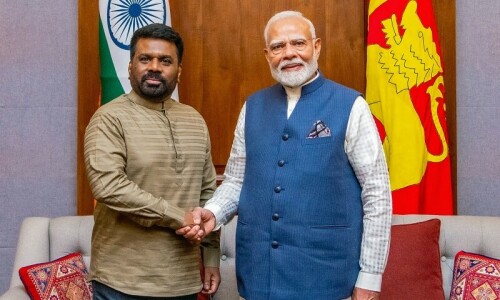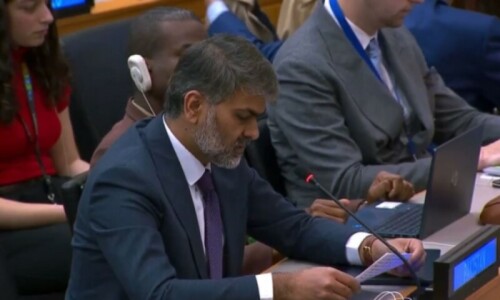THE move was long overdue, but it has happened at last. On Friday, the UK announced that Pakistan would be taken off its Covid-19 red list for travel from Sept 22. The decision comes as a relief to many people whose plans for travelling to the UK had been on hold since April 9 when travel for passengers from Pakistan (and other countries added to the red list) was curtailed, unless they were British or Irish nationals or had residency rights.
Inclusion on the red list translated to prohibitive costs for prospective travellers — including British nationals — who had to undergo a 10-day quarantine period at a designated hotel — a minimum expenditure of £2,285 per adult. Aside from that, pre-departure testing and PCR tests added further to the cost.
Speculation about travel restrictions had been doing the rounds since March when an alarming percentage of visitors from Pakistan were testing positive for Covid-19. The British government expressed reservations about the comprehensiveness of Pakistan’s Covid-19 data and its rate of vaccination to justify the travel restriction.
However, the UK’s decision to retain Pakistan on the red list in August even as it moved India to the amber list in its ‘quarantine traffic light system’ elicited strong condemnation, including from Pakistan-origin MPs in Britain. Several alleged discrimination, saying that politics rather than data was the primary consideration behind the move. Pakistan’s political leadership too was justifiably outraged. After all, India’s infection rate at the time was far higher than that in Pakistan.
Read: Hate in the time of Covid
Ironically, just a couple of months later, The Economist ranked Pakistan as among the best performing countries for handling the pandemic.
There are certainly aspects of coronavirus management, especially by developed nations towards those less so, that smack of discrimination. The European Union, for example, needs to review its policy of not accepting the Chinese vaccines as valid proof of immunity. The only exception thus far is Sinovac, but that too is only accepted by eight EU/Schengen countries. This is despite the fact that WHO several months ago said that any Covid-19 vaccines it had authorised for emergency use — which included the Chinese vaccines — should be recognised by countries that were opening up their borders to inoculated visitors. The global health authority correctly said that discriminating against certain vaccines would “create a two-tier system”. Such an approach only exacerbates the inequities in the handling of the pandemic.
Published in Dawn, September 20th, 2021














































